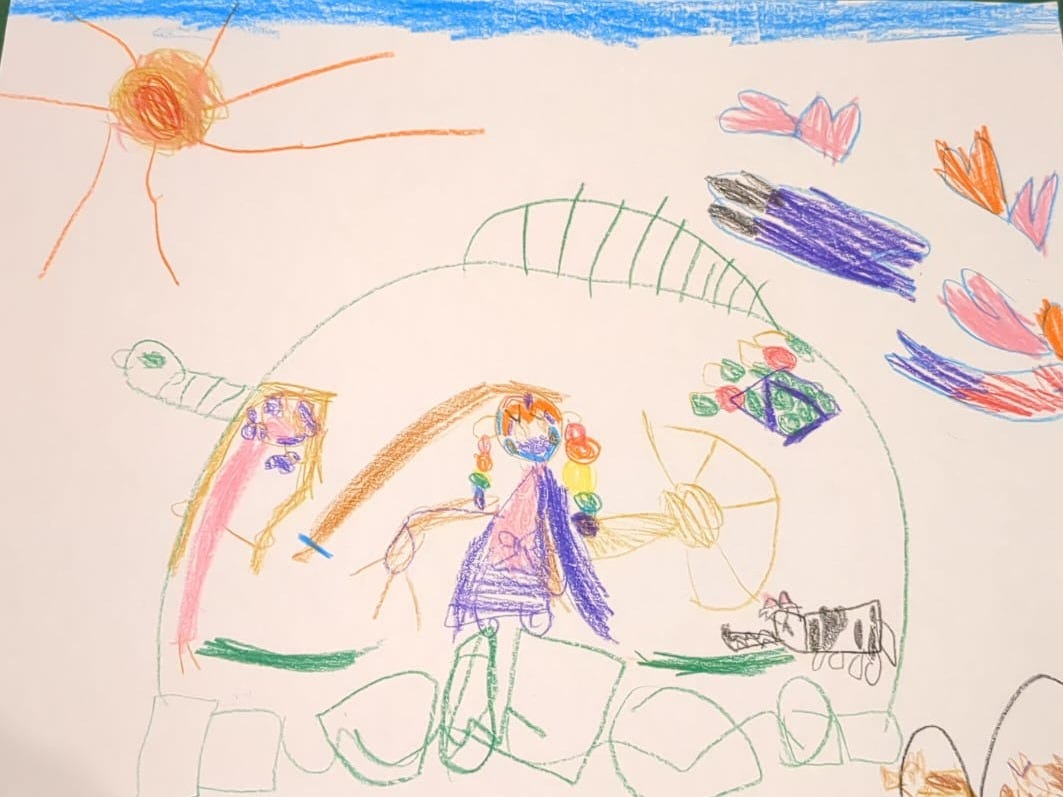It’s a brand new episode of Don’t Think Twice, our podcast on intimate friendship!
Today’s conversation is one that’s been haunting our dinner table for months now. The spookiest subject of all…housing. (BOO!) How can we challenge the status quos on family, living arrangements, and maintaining proximity to our friends when there’s a whole HOUSING CRISIS afoot here?? Loneliness and isolation is literally built into the architecture of our neighborhoods: with single-family zoning laws; with the permitting and red-tape that prevents customizing your home to fit your family; with the lack of public spaces; with the discrimination that’s baked into our city planning.
We had Michael Freedman-Schnapp over at our dinner table for some chitchat and dessert after the baby went down for the night. He is a housing policy expert at a firm that advises foundations and municipal governments about affordable housing. [& as an extra treat for you New Yorkers, Michael was the former policy director for our city comptroller (and possible 2025 mayoral candidate??) Brad Lander].
It’s incredible how housing issues meet at the nexus of nearly everything we’ve covered this season. Group living. Friends cohabitating. Aging together. Queer chosen family. None of it is possible without the physical spaces we occupy together.
The subject is also very personal for the two of us. As friends and co-parents, we’ve opted for a certain entanglement of our home lives that impacts what our living situation may look like in the future. We’re currently housemates, and this works great — we love our home, and our son is still so little. At the same time, we do wish to live separately in the future. BUT ALSO while staying in close proximity to one another. BUT ALSO no ‘burbs for these two city mice. This makes for a real housing challenge: where do we find (or make) this urban utopia for co-living, which offers just the right balance of privacy and closeness? For instance how could we possibly find —or afford— multiple apartments in the same building?
Okay, spoiler alert, we don’t nail down the answers to these questions in a single night of conversation. But we learned a lot more about how this all works. There’s so much to chew on here: house-rich Boomers; too-big homes for purchase vs too-small homes for rent; discriminatory housing laws; the decline of social clubs; the uniquely American taboo against living with one’s parents; disappearing third spaces; zoning; transit; mortgages! We really do tackle a little bit of everything — do any of these resonate for you? How difficult has it been to find a place to live that meets your own specific lifestyle needs? Has it been easy to build a community in that place? Why or why not?

Further reading and references from the episode:
The book that Michael references by Thomas Sugrue on the population decline of Detroit is called Origins of the Urban Crisis. A deep history of a great American city.
Real estate is an asset that’s increasingly being hoarded (by necessity!). People are moving less and less frequently. Here is a bit more data on the “mobility” index Michael references: Per the Current Population Survey, mobility was stable at the average family moving every 5 years roughly until late 1980s. This decreased steadily to a move roughly every 9 years by late 2010s. In the last 4 years, it has been one move only every 11 (!) years.
Roommate law info for New York: the current version dates to 1983, and bars multiple unrelated adults from cohabiting. That 4BR share you used to live in Bed-Stuy? Technically, it was not-quite-legal. Not only is this law meant to police SRO’s, it probably also has its origins in discrimination against queer couples and nontraditional living setups.
NYC housing stats: There are an estimated ~300-320k owner-occupied coop apartments in the city. Michael estimates that about 30k are low-income or former low income coops (HDFCs) and another 20-25k are middle income coops (Mitchell-Lama).
Here is Michael’s essay about the community he grew up in, Reston, Virginia — a former “planned community” founded as an integrated city, whose housing politics have grown increasingly exclusionary and averse to new development (like many older suburbs!). https://ggwash.org/view/72018/reston-virginia-fairfax-we-have-a-problem
This week’s radio show was 100% crowdsourced songs for Amrita’s birthday. Our spotify list updates weekly, so get at it while it’s good:






i am excited to listen to this.